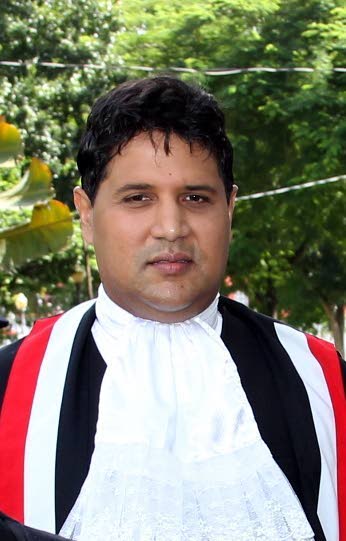State withdraws appeal on media house raid

THE State has withdrawn its appeal of a judge’s ruling that police search of a media house by the police Financial Investigations Bureau (FIB) was illegal and unconstitutional.
Justice of Appeal Nolan Bereaux granted permission to the Attorney General, the Commissioner of Police and the head of the FIB, Supt Wendell Lucas, to withdraw the appeal of Justice Frank Seepersad’s ruling in January 2021.
Seepersad held that the two search warrants the police obtained in search of information which could lead them to a journalist’s source were “plainly irregular,” unlawful and unconstitutional, as they disproportionally infringed on the media house’s right to freedom of the press.
The warrants were executed on March 11, 2020, after the publication of an investigative piece on ACP Irwin Hackshaw's being flagged by local banks between 2014 and 2017.
The police seized several devices from Express editor in chief Omatie Lyder’s office at Independence Square, Port of Spain. At the time, Hackshaw was acting commissioner of police.
After the court’s ruling, the Media Association (MATT) said the judgment was a win for “public interest, a win for every journalist in the country and every media house, a win for whistleblowers and a big win for democracy."
MATT, which was included in the proceedings before the judge and allowed to make submissions as an interested party, said the court’s ruling, in these uncertain times, was “anchored in certainty about protecting the institution of a free press and protecting citizens of TT."
The association said in January 2021,“The judge's ruling is informed by current global thinking. It offers tangible guidance to the police and the legislature on reforming processes to protect individual citizens and the flow of information in society.
“MATT feels confident that the constitutional right to a free press is safe in the bosom of our court.”
Seepersad’s ruling set clear guidance on executing search warrants on media houses.
“The police should adopt an approach which is guided by fundamental principles of fairness and natural justice, and it should be acknowledged that there exists a need to strike a balance between the interest of law enforcement, on the one hand, and the interest of privacy and proprietary protection, on the other,” Seepersad said.
As he called for legislative reform, he said search warrants which involve the “unearthing of source information” should be issued by judges of the Supreme Court, to mitigate the “chilling impact which the search of a media house can have on society.”
“Parliament may therefore wish to urgently consider the enactment of an amendment to Section 5 of the Indictable Offences (Preliminary Enquiry) Act.
"Until such time as the suggested legislative amendments are undertaken, the police should only approach magistrates, if they intend to obtain a search warrant to search a media house,” Seepersad said in his ruling.
The warrants were approved by justices of the peace.
Seepersad said the warrants reflected that the offence being investigated was the indictable offence of “tipping off,” but he pointed out that under the Proceeds of Crime Act. tipping off was not indictable but a summary offence.
He also said the warrants said they were being used for gathering evidence contrary to section 24 of the act.
But he pointed out, “No such offence exists by virtue of Section 24 of the Proceeds of Crime Act.”
He noted the section referred to did not relate to the offence of tipping off, but set out the procedure for the DPP to obtain and modify confiscation orders on account of an increase in the value of an offender’s property.


Comments
"State withdraws appeal on media house raid"